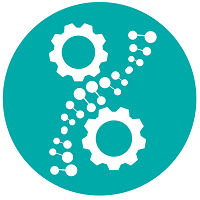Manufacturing & Analytical Characterization
Symposium: Predictive Tools and Applications in Manufacturing and Product Quality 1
A Novel Combined Physics-Based and ML Virtual Cocrystal Screening Model
Wednesday, November 12, 2025
10:00 AM - 10:30 AM CT
Location: 301 ABC

Yuriy Abramov, PhD
Executive Director of Computational Chemistry and Data Science
Porton USA/J-Star Research
Ashland, Massachusetts
Speaker(s)
A novel virtual coformer screening model, COSMO-RS+Δ-ML, integrates COSMO-RS with machine learning to account for both amorphous-phase API-coformer miscibility and crystallinity contributions to cocrystallization. This model addresses a key limitation of conventional cocrystal screening methods, which, apart from those based on crystal structure prediction, generally neglect crystallinity contributions. The methodology offers a balance between computational efficiency and improved accuracy.
The novel approach was validated against published experimental cocrystal screening data for multiple APIs, demonstrating superior performance compared to the standard COSMO-RS method. The COSMO-RS+Δ-ML model was subsequently applied to guide targeted experimental cocrystal screenings for tiopronin and dapagliflozin, resulting in the discovery and characterization of several cocrystal hits, including the first known anhydrous cocrystal of tiopronin. The demonstrated workflow, combining virtual screening by the COSMO-RS+Δ-ML model with targeted experimental studies, streamlines and de-risks pharmaceutical coformer screening efforts.
The novel approach was validated against published experimental cocrystal screening data for multiple APIs, demonstrating superior performance compared to the standard COSMO-RS method. The COSMO-RS+Δ-ML model was subsequently applied to guide targeted experimental cocrystal screenings for tiopronin and dapagliflozin, resulting in the discovery and characterization of several cocrystal hits, including the first known anhydrous cocrystal of tiopronin. The demonstrated workflow, combining virtual screening by the COSMO-RS+Δ-ML model with targeted experimental studies, streamlines and de-risks pharmaceutical coformer screening efforts.
Learning Objectives:
- To evaluate the current state-of-the-art computational approaches to support pharmaceutical cocrystallization development
- Learn workflow of a combined computational and experimental cocrystal form screening
- Novel results of the computationally guided experimental cocrystal screening of tiopronine and deflglazine

